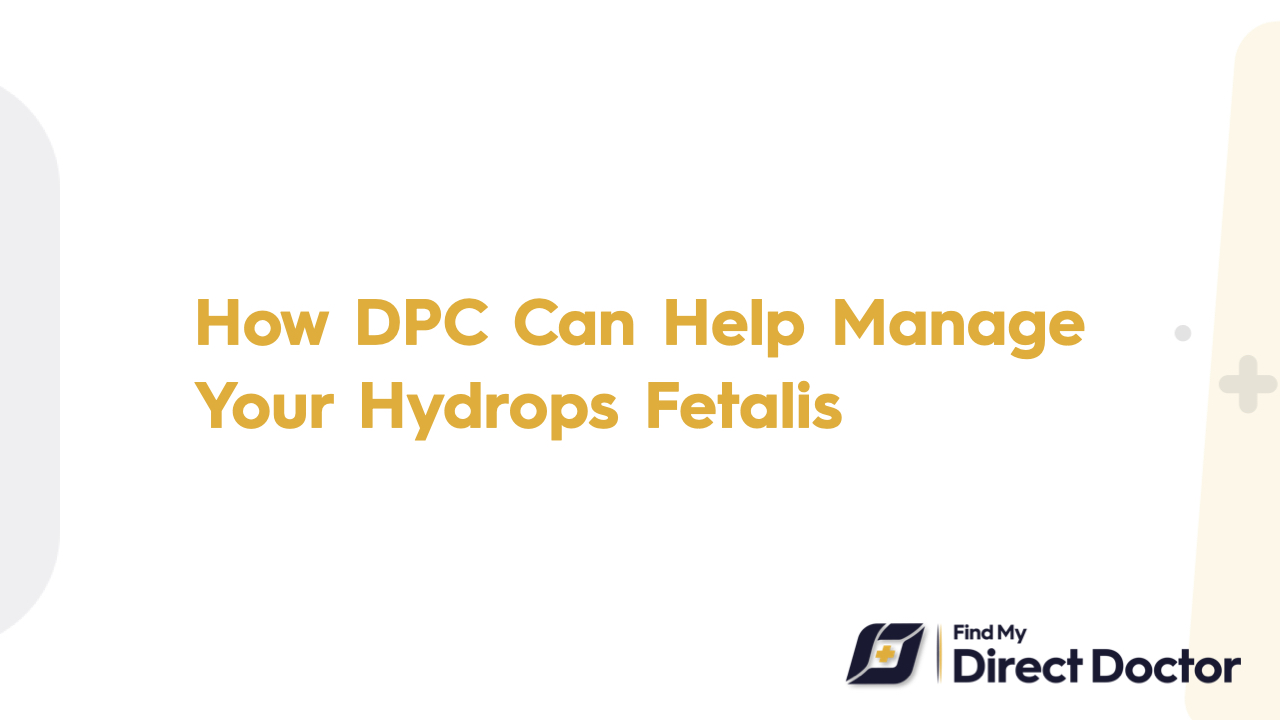



A dangerous medical disorder known as hydrops fetalis is typified by an excessive buildup of fluid in the growing fetus's tissues and organs. This abnormal accumulation of fluid can cause life-threatening issues for the fetus and frequently results in swelling in places like the skin, chest, or belly.

Depending on the underlying cause, the illness is typically classified as either immune or non-immune. While non-immune hydrops fetalis is linked to a number of illnesses, including infections, chromosomal abnormalities, and heart defects, immune hydrops fetalis usually results from severe Rh incompatibility between the mother and fetus. Excessive amniotic fluid, an enlarged placenta, and noticeable fetal swelling on ultrasounds are some symptoms that can be found during pregnancy.
Direct Primary Care (DPC) can be extremely helpful in treating hydrops fetalis by providing pregnant patients with all-encompassing, individualized care. Early detection is essential, and DPC providers can spot warning signals with sophisticated diagnostic imaging and routine prenatal exams. For additional assessment and action, they also guarantee appropriate collaboration with maternal-fetal medical professionals.
The severity and underlying cause of hydrops fetalis determine how it should be treated. To improve fetal outcomes in cases of immunological hydrops fetalis, DPC clinicians work with specialists to start treatments such as intrauterine transfusions or maternal medicines. They help monitor and guide patients through customized care regimens to target the underlying cause of non-immune reasons.
DPC's availability and steady support are crucial for families dealing with a hydrops fetalis diagnosis. Patients are guaranteed to feel heard and informed during the difficult journey thanks to the individualized attention. By collaborating with specialists and doing routine follow-ups to track progress, DPC providers promote continuity of care.
Additionally, the DPC model facilitates open communication and flexible scheduling, which lessens the stress that comes with routine medical visits. Families may count on their provider to give them emotional support, test result explanations, and timely updates. This all-encompassing approach to care builds a solid basis for managing the condition's complications.
DPC's holistic approach to maternal and fetal health is an additional advantage. In order to maximize the mother's general well-being, providers address things like prenatal care, stress management, and nutrition. The chances of improved outcomes for both mother and child are increased by this proactive strategy.
Direct Primary Care places a strong emphasis on providing individualized care, particularly for complicated illnesses like hydrops fetalis. DPC practitioners take into account the nature, etiology, and course of each patient's ailment when creating personalized management regimens. Families are guaranteed to receive the most care possible at every stage thanks to this tailored attention.
In order to help parents understand the disease, the treatment process, and what to anticipate throughout and after pregnancy, DPC clinicians take the time to educate them. In an otherwise overwhelming situation, this transparency gives families the power to make educated decisions and cultivates a sense of control.
Furthermore, to guarantee smooth care coordination, DPC providers collaborate closely with specialists. They offer constant direction and support for the patient's best interests from prenatal diagnosis to postnatal follow-ups. This thorough, patient-centered approach emphasizes how important DPC is to the skilled and compassionate management of hydrops fetalis.
Previous Post